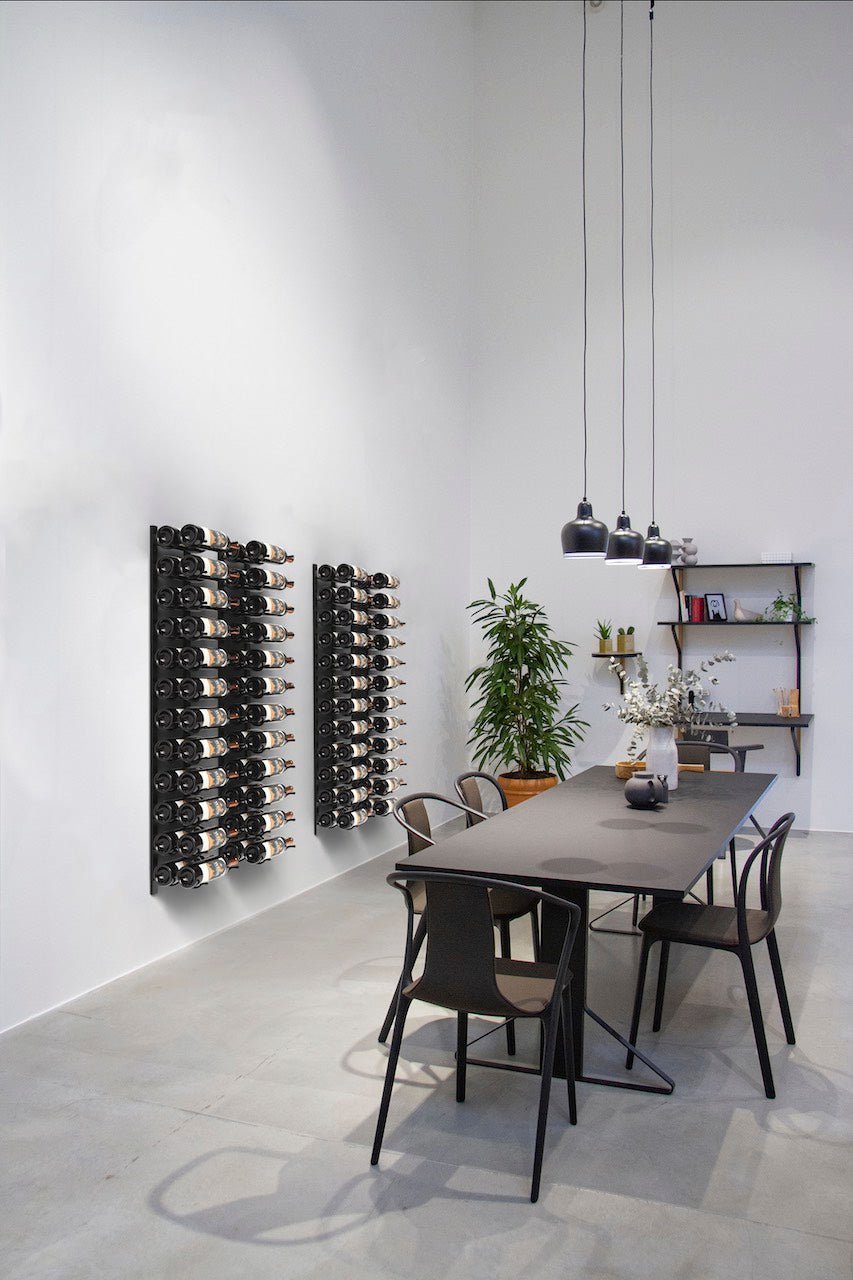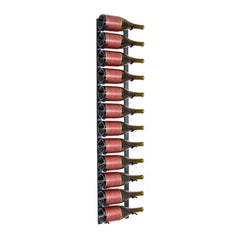Traditionally, wine cellars stuck true to their name and occupied an area of the basement with very little light, vibrations, and perfect conditions for storing wine. In the past, glass had very little to do with storing wine in these dark, dungeon-like cellars.
These days, we have wine cellars, rooms, walls, enclosures, and under-the-stairs wine storage – there is wine everywhere.
As wine storage solutions become more elegant and mainstream, the demand for professionally designed wine cellars increases, and we want to fulfill all of our clients’ expectations. That usually includes the need for custom glass!
We use glass doors, glass partitions, and glass walls in most of our designs. Many questions come up when talking about custom glass. Being aware of some of the more technical aspects of custom glass will ensure a properly functioning wine cellar. Here are a few things to consider.
Let’s Talk About Glass
The type of glass that should be used in a wine cellar should be UV-coated tempered safety glass. Double-paned glass is recommended for wine cellars against the single-paned glass.
Why double-paned? The short answer is that using double-paned glass is critical in keeping your wine cellar quiet and working efficiently.
The gap between panes of glass and the vacuum between the panes are the differences makers in your custom glass design. The thickness of the glass itself doesn’t matter as much. Single-paned glass is not recommended as it tends to create condensation issues in your wine enclosure.
When considering glass doors, remember that you are trying to create the best envelope in the space. Frameless doors look great but will be harder to keep a seal of the room, and your cooling unit will have to work harder. Doors with metal or wood frames (depending on the desired look) are much more appropriate options to consider.
Temperature and Humidity
Wine is at its best when stored in a location that has consistent, cool temperatures and reads a relative humidity of ~60%.
Temperature fluctuations cause the cork to expand and contract, allowing oxygen to flow into the bottle, prematurely aging the wine. Temperature is a significant factor in the overall quality of cellared wines and reduces the freshness.
If you have too much humidity, labels will start to fall apart, and you could be left with mold issues. If you have too little humidity, the cork could dry out and expose the wine to oxygen, destroying the quality.
The climate-controlled space will be easier to maintain when you use the right glass for your wine cellar application.
Direct Sunlight
We love the sun, except when it messes with the quality of our wines!
Depending on where the wine storage is located in the home, direct sunlight and its harmful UV rays could pose an issue. Issues that affect the quality of the wine stored and how effective the custom glass solution is.
There are a variety of films, kind of like how we might think about tinted windows on a car, that help to block out the harmful UV rays. This will help maintain the temperature and humidity within the space and keep things under control.
Construction
You should give the wine storage solution you construct the same consideration given to your house when it was built. Suitable vapor barriers, insulation, and a tight envelope … With custom glass, you take away all those things and need to find ways to make up for them.
Insulating where you can, protecting the floor and ceiling, using high R-value insulation, double-paned glass, and exterior grade doors are all steps that need to be taken to build a proper envelope with glass.
Cooling Systems
We can conduct a heat load calculation to determine the most appropriate cooling system using the right glass for your wine cellar and the suitable construction materials.
There are several types of cooling systems that we use in our designs. All the factors we discussed are considered and coupled with your heat load calculation, we can determine the most appropriate system for your application.
The Bottom Line
Use UV coated, tempered safety glass, double-paned, in metal or wood frames.
Apply a UV protective film to glass if in the path of direct sunlight.
Take steps to ensure a proper envelope is constructed for the space.
Only then can you determine the correct cooling system that will adequately cellar your wines.
Modern Wine Cellars typically incorporate custom glass for storing and displaying wine, but it needs to be done right. If you have questions about your wine cellar project, please don’t hesitate to get in touch with us today!


